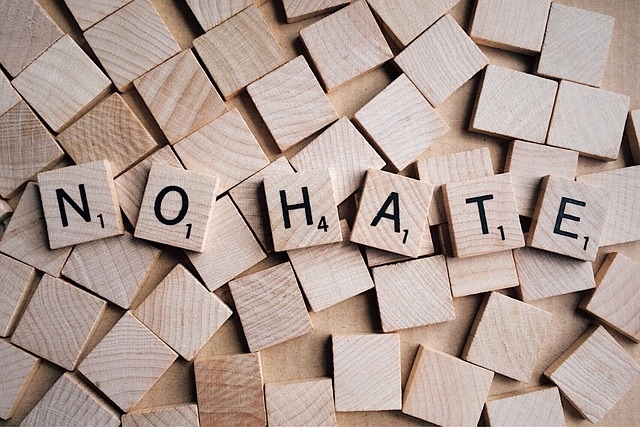If someone hated you, wouldn't you want to know about it? To clarify, I am not asking whether you'd like to listen to them express their hatred of you. I'll assume you would not enjoy that any more than I would. Instead, I'm asking you to imagine a scenario where someone hates you. In that case, would you rather know about it or not?
I'd want to know. For my own safety, I'd consider this relevant information to have. Remaining unaware of their hate seems dangerous. I wouldn't know that I needed to avoid them or be on guard around them. I'd be less prepared.
People hate each other for all sorts of silly reasons. Someone might hate you due to your sexual orientation or gender identity. They might hate me because I don't share their belief in various gods. Regardless of why they might us, the fact that they do hate us seems relevant to me.
I am all for discouraging hate, but I'm cautious about driving it underground. This could make things feel more civil and tolerant, but that would be an illusion. And that seems like a dangerous sort of illusion.
This is part of why I find "hate speech" such a tricky subject. I'd love to change attitudes and reduce hate. But driving it underground doesn't always do that. Concealed hate can still be dangerous. If we don't see it coming, it could even be more dangerous.
I watched part of a movie the other night. I can't recall what it was now, but it was set in the South during the 1960s. It dealt with racism, and racial slurs were flying. The Whites were quite willing to tell the Blacks what they thought of them, and it wasn't pleasant.
My tolerance for hearing this sort of thing expressed so openly wasn't high. I found myself thinking about how glad I am that I don't have to hear those words today. Well, I do hear them but not as often as the characters depicted in the movie did. This seems like progress, doesn't it?
But is it real progress or the appearance of progress? I don't enjoy hearing these slurs. The fact that I hear them less often seems positive. But it isn't like the attitudes that underlie those words aren't still present. We know they are. They are harder to spot when concealed, but they remain. And when they do rise to the surface, many seem shocked by their presence. Might it not be better to know where they are?
I'd like to believe that there has been real progress in attitude change. Hearing fewer racial slurs makes this easier to believe. But is it accurate? Do fewer people hold racist attitudes? Or have driven the expression of such sentiments underground?
If someone hates me, I'd like it to be out in the open. I'd like to know vs. having to guess. I'd rather see them coming. I'd also like to be more accurate in how I assess progress toward equality.
Image by WOKANDAPIX from Pixabay
